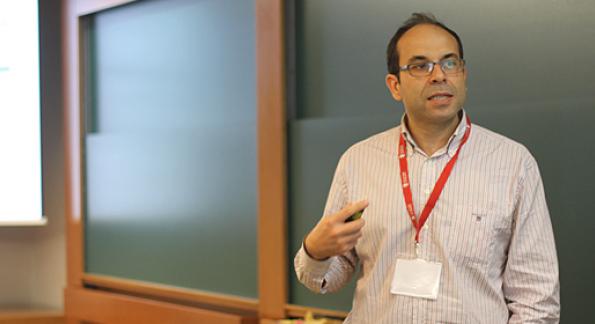
"In many developing countries, household conditional cash transfers (CCTs) produce positive public health results". So said Marcos Vera, Professor at University College London, who recently presented at the 4th Development Week, organized by the Navarra Center for International Development of the University of Navarre at IESE Business School in Madrid. This type of policy, CCTs, consist of completing periodic transfers of money to poor households—often to mothers directly—in exchange for children’s school attendance or bringing children to health centers for vaccination, for example.&...

Four extra months of maternity leave have a significant effect on the education and income of children when they become adults. This effect is especially noticeable with the most marginalized families: it causes a 5% reduction in dropout rates and increased average income by 8%.
So states Pedro Carneiro of University College London, who presented at the fourth annual Development Week conference of the Navarra Center for International Development of the University of Navarra.
His study compared Norwegian children born within one month of each other: between June 1st of 19...

Economic incentives increase students’ motivation to learn, according to the findings of a study from the University of Pennsylvania (UPenn) of 40,000 students in 88 high schools in Mexico. The study’s central goal was to determine what policies can improve educational outcomes. Jere Behrman, professor at UPenn, presented the study at the 4th Development Week, organized by the Navarra Center for International Development of the University of Navarra at IESE Business School in Madrid.
To carry out the study, the research team divided the students into ...






